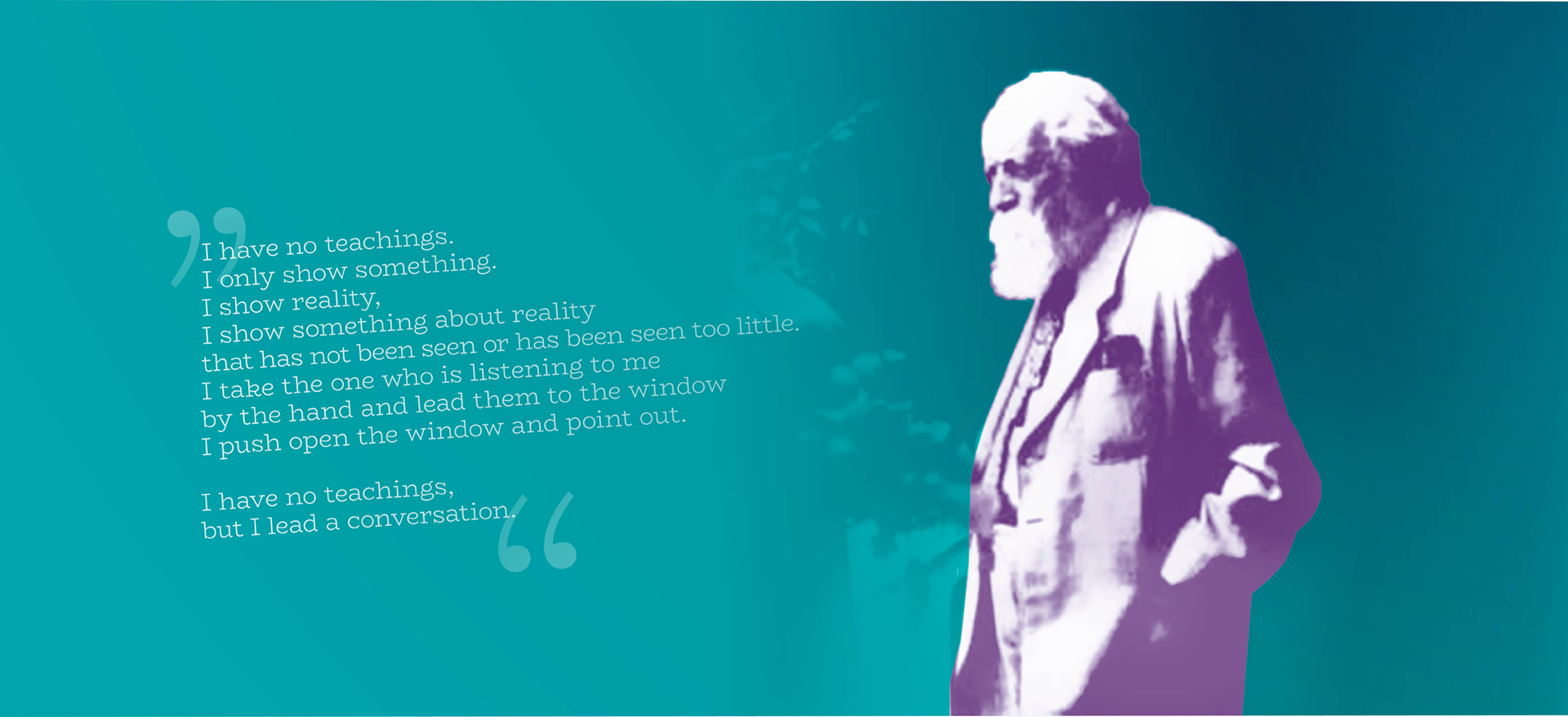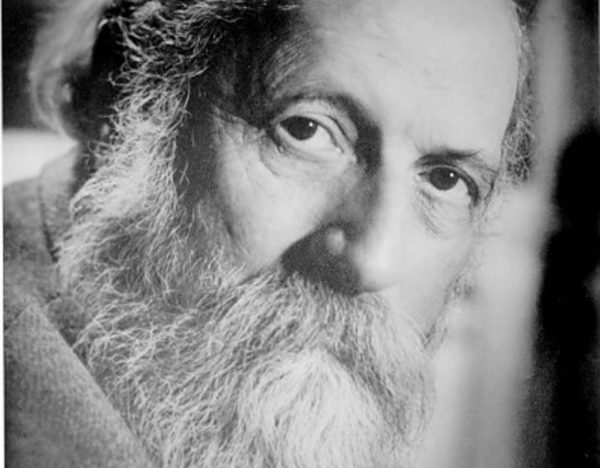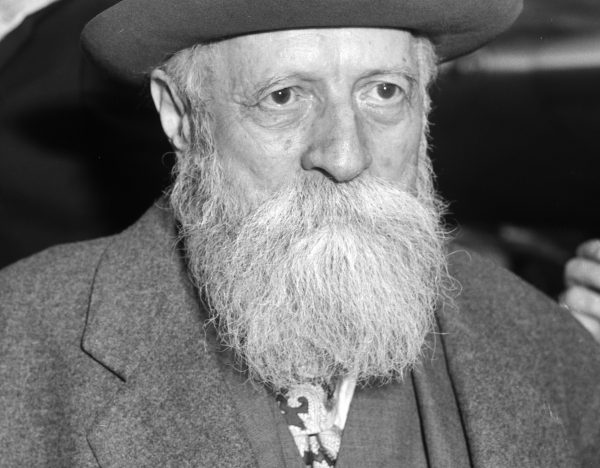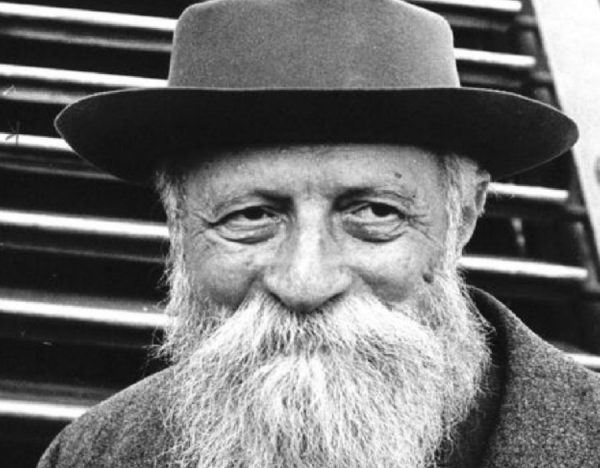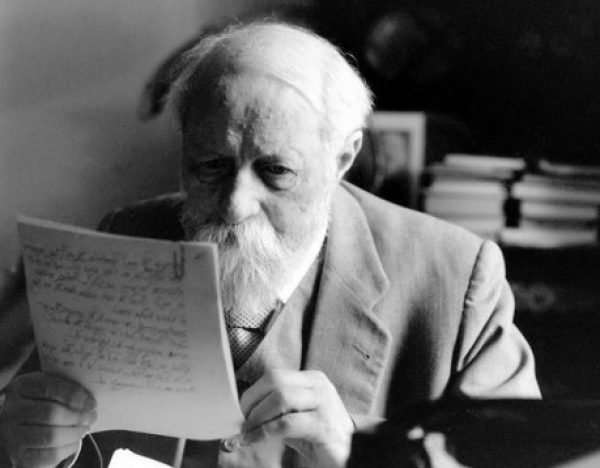Martin Buber
Martin Buber grew up in Vienna and moved to his grandparents’ home in the Galician city of Lemberg (now Lviv, Ukraine) at the age of four. His grandfather Salomon Buber was a scholar of Midrash, who was, in his time, one of the most important researchers and collectors in the field of the Hasidic tradition of Eastern European Jewry. After attending the Polish grammar school in Lemberg, Martin Buber studied in Vienna, Leipzig, Zurich and Berlin. He took courses in philosophy, German studies, art history, psychiatry and psychology, with, among others, Wilhelm Dilthey and Georg Simmel.
In 1899 he married Paula Winkler, who contributed to his work and wrote under the pseudonym Georg Munk. The couple had two children: their son, Rafael, born in 1900; and their daughter, Eva, born in 1901.
In Vienna, Buber met Theodor Herzl personally (first contact by letter in February 1900) and joined his Zionist movement, but never became active. In 1901 he became editor of the Zionist weekly “Die Welt” and in 1902 became co-founder of the Jewish Publishing House. Beginning in 1905, he worked for the publishing house Rütten & Loening as an editor.
In 1916, together with Salman Schocken, he founded the monthly magazine “Der Jude”, which appeared until 1928.
xxx
Martin Buber was a lecturer and honorary professor of Jewish religious education and ethics in Frankfurt am Main from 1924 to 1933. He was expelled from the National Socialist Reichsschrifttumskammer, a government institution, created to control all publications according to the principles of National Socialism, in 1935. In 1938 he was able to escape from National Socialist Germany to Jerusalem, where he taught anthropology and sociology at the Hebrew University of Jerusalem until 1951. During this period, despite his skepticism towards Zionism, Buber was close to some Zionist intellectuals, such as the philosopher Felix Weltsch, the writer Max Brod, politicians like Chaim Weizmann as well as Hugo Bergman. They were all acquaintances of Buber from the old European cities of Prague, Berlin and Vienna; their friendship and mutual stimulation lasted until the 1960s in the newlycreated state of Israel.
Buber’s home in Heppenheim, where he had lived with his wife and granddaughters Barbara and Judith Buber from 1916 to 1938, was vandalized during the November pogroms on 9 November 1938. In the years 1938-1940, Paula Buber wrote the literary portrait of the time “Muckensturm. A Year in the Life of a Small Town”, which was published in 1953 under her pseudonym.
In New York in 1955, Buber was involved, along with Hannah Arendt, Gershom Scholem and others, in the founding of the Leo Baeck Institute, an important documentation and research center for the history of German-speaking Jews. A large part of the holdings, available in electronic form, can be viewed at the Jewish Museum Berlin. He was also – like Hannah Arendt – one of the authors of “Aufbau”.
xxx
Paula Buber died in Venice in 1958 on her return from a joint trip to the USA and Europe. Martin Buber died in Jerusalem in 1965.
Buber was a stimulating and at the same time uncomfortable religious thinker. He advocated the mutual perception and recognition of Judaism and Christianity. His insistence on God’s unrevoked covenant with Israel was accompanied by a deep respect for the mystery of God in Church and Christianity. He contributed to the churches’ departure from their long history of hostility towards Jews and anti-Semitism and promoted Christian recognition of Israel’s divine mystery, as well as a readiness for practical cooperation between Christians and Jews for peace and justice.
Literature
- Themenheft „Martin Buber. Neue Interpretationen“ der Zeitschrift: Zeitschrift für christlich-jüdische Begegnung im Kontext (ZfBeg) 1/2 (2018)
- Dominique Bourel, Martin Buber. Was es heißt, ein Mensch zu sein. Biografie. Aus dem Französischen übersetzt von Horst Brühmann, Gütersloh 2017.
- Karl-Josef Kuschel, Martin Buber – seine Herausforderung an das Christentum, Gütersloh 2015.
- Paul Mendes Flohr, Martin Buber: A Life of Faith and Dissent. Yale University Press 2019.
Members of the Board
![]() Prof. Dr. Abi Pitum (Chair Person)
Prof. Dr. Abi Pitum (Chair Person)
München
![]() Reverend Friedhelm Pieper (Deputy Chair Person)
Reverend Friedhelm Pieper (Deputy Chair Person)
Bad Nauheim
![]() Rudolf Herfurth
Rudolf Herfurth
Frankfurt
![]() Michael Korn
Michael Korn
Darmstadt
![]() Prof. Dr. Ursula Rudnick
Prof. Dr. Ursula Rudnick
Hannover
Members of the Advisory Board
![]() Mark Dainow (Chair Person)
Mark Dainow (Chair Person)
Offenbach
![]() MR Johannes Schellakowsky (Deputy Chair Person)
MR Johannes Schellakowsky (Deputy Chair Person)
Wiesbaden
![]() Reverend Anja Harzke
Reverend Anja Harzke
Frankfurt
![]() Prof. Dr. Johannes Heil
Prof. Dr. Johannes Heil
Heidelberg
![]() District administrator Christian Engelhardt
District administrator Christian Engelhardt
Heppenheim
![]() Rabbi Prof. Dr. David Rosen
Rabbi Prof. Dr. David Rosen
Jerusalem/Israel
